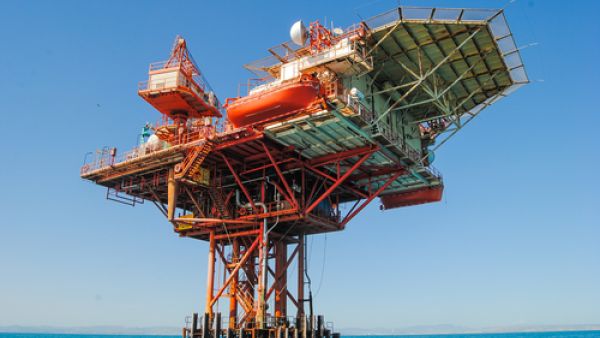Top officials in Lebanon promised to award the first oil and gas exploration contract to selected bidding companies before the end of 2017, said Wissam Chbat, chairman of the Lebanese Petroleum Administration. “We have been promised by top officials to have the first award or contract signed with selected bidding companies for oil and gas exploration on Lebanon’s offshore before the end of this year,” he told the audience at an Oil and Gas conference held at L’Ecole Superieure Des Affaires Tuesday.
The conference, which was organized by Front Communication, aimed at discussing topics related to the oil and gas industry in Lebanon and worldwide.
Chbat said that awarding the first oil and gas exploration contract to selected bidding companies by the end of 2017 will add more value for the second and third licensing rounds that will be opened later on.
“This is very crucial for this sector in Lebanon. But if any political deficiency impacts the awarding of this bidding round, it is going to be very hard to recover from any possible delays,” he warned during a session held within the framework of the conference. “We are witnessing that from our meetings with companies as well,” he added.
Chbat said that Lebanon has a great advantage over other regional countries when it comes to oil and gas exploration.
“We have a modern legal framework starting from policies in addition to laws and regulations that talk about all phases from reconnaissance to exploration, development and production,” he said.
He added that Lebanon also has a very clear tender protocol and a competitive bidding process. “The contract model agreement is nonnegotiable, meaning that the contract is a decree and this reduces, to the maximum, any possible lack of transparency because no one is allowed to negotiate the awarded contract.”
Chbat added that Lebanon also has a very interesting 3-D seismic data that provides very rich background to the companies to do assessment for their exploration activities. “Companies have the right to purchase and look at this data and to de-risk their investments.”
One of the most important advantages that companies will get from bidding for oil and gas exploration on Lebanon’s offshore, Chbat said, was that the selection process for blocks that will be opened for bidding in the first licensing round was done very carefully based on discoveries made in the region.
The government announced at the beginning of this year that it would put out blocks 1, 4, 8, 9 and 10 for bidding in the first licensing round for the exploration of oil and gas.
“One of the opened blocks in Lebanon has similar features to blocks located in Zohr field,” he said.
He elaborated further by explaining that in the recent third bidding round of Cyprus, the only block that received the maximum number of bids is the block that has the same geological setting of Zohr in Egypt. “Zohr discovery accounted for 44 percent of all discovered resources in the East Mediterranean over the last 20 years in a carbonate environment,” he said.
“Our Selection for the blocks has been done based on regional exploration activities and the lessons learned from these activities. It was also made based on the appetite of companies toward the carbonate environment and we could offer to companies the seismic data where they can understand more our offshore,” he added.
MP Yassin Jaber, who spoke as well during the session, said he wished the two decrees concerning oil and gas exploration were passed by the government earlier when the price of oil was still high.
The government endorsed at the beginning of this year the two crucial decrees on offshore oil and gas exploration, putting an end to the long-delayed matter.
Jaber said there are many unanswered questions about the revenue sharing and other issues related to oil and gas.
Chbat commented by saying that there is no intention to divert attention when it comes to profit sharing in the oil and gas sector.
“You are simply dividing the residual petroleum produced after deducting cost,” he said.
He explained that the most important thing in this area is to monitor the cost for it not to be inflated and this is done on two levels.
“We have a list of recoverable costs payments that the companies can recover and this can be done at the level of LPA,” he said.
“Moreover, the finance ministry will be monitoring the cost to make sure that taxes are deduced in a proper manner,” he added.
He said that companies and the Finance Ministry will be doing the same job for different purposes.
By Dana Halawi








